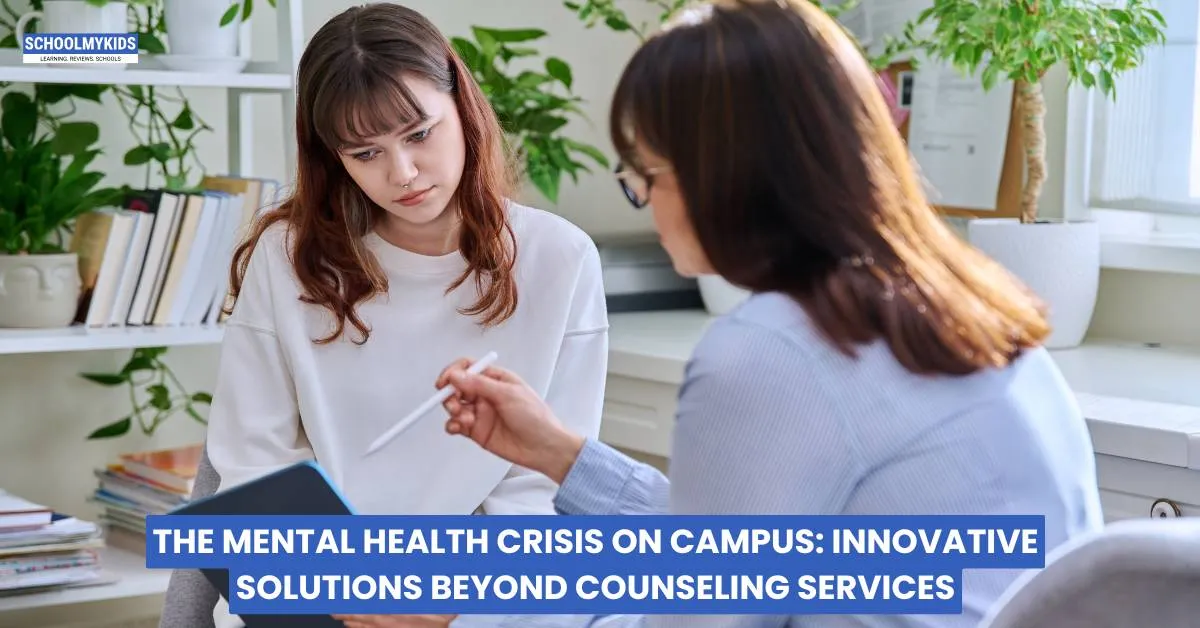Introduction
College is a time of growth, ambition, and opportunity—but for many students, it's also a time of invisible battles. The mental health crisis in higher education has become a pressing concern worldwide. In India, especially, increasing competition, financial strain, and societal pressure have made mental wellness a critical issue. While counseling services are crucial, the solution must reach far beyond the counselor’s door. It’s time for a broader, more inclusive approach.
The Reality of Campus Mental Health
More students than ever are reporting symptoms of anxiety, depression, sleep disorders, and academic burnout. A study by the Indian Journal of Psychiatry found that nearly 15% of college students exhibit signs of clinical depression, and many more suffer in silence. But a shortage of trained counselors, cultural stigma, and an overemphasis on achievement often keep students from seeking help.
Traditional mental health services, while essential, can only go so far. They’re often under-resourced and inaccessible to students who fear judgment. As mental health becomes a campus-wide concern, the response needs to be collective, creative, and preventive.
Peer Support: The First Line of Defense
One of the most promising solutions is peer support. Students often feel more comfortable opening up to someone their own age who shares similar experiences. Peer mentoring programs and student-led mental health clubs can foster open conversations and provide emotional first aid. These aren’t replacements for professional care, but they create pathways to help that feel less intimidating.
Some universities in India have adopted ambassador-style models, where trained student volunteers promote emotional wellness and direct peers toward resources. These micro-communities break the stigma and normalize help-seeking behavior.
Technology as a Mental Health Ally
Digital tools are emerging as a powerful way to make mental health support more accessible and personalized. Apps like YourDOST and MindPeers offer anonymous counseling, self-help resources, and mood tracking. Virtual support chats, AI-driven therapy bots, and 24/7 help lines ensure students can access help even when campuses are closed or counselors are booked.
Beyond therapy, technology is also helping colleges gather data on student stress patterns through wellness surveys and attendance tracking. This allows institutions to intervene early and offer tailored support.
Curriculum Reform with Mental Health in Mind
Some progressive universities are integrating mental health into the academic structure itself. Credit-based courses on emotional resilience, stress management, and mindfulness encourage students to actively build mental strength. Open elective courses in yoga, journaling, and expressive arts are being used to ease anxiety and increase self-expression.
Additionally, reevaluating grading systems and attendance policies to prioritize learning over punishment can reduce anxiety. Small shifts—like extending assignment deadlines during exam weeks or allowing for mental health leave—show students that their well-being is taken seriously.
Building Emotionally Inclusive Spaces
Mental health solutions also require physical and social changes. Quiet rooms, green zones, or campus gardens offer calming spaces for overwhelmed students. Weekly wellness hours, where classes are paused for relaxation or creative activity, encourage a collective pause.
Campus leadership plays a crucial role, too. Faculty members trained in basic emotional support can better identify when a student is struggling. When professors talk openly about stress, vulnerability, or failure, it models emotional authenticity.
A Cultural Shift We Can’t Ignore
Perhaps the most important solution is cultural. Indian students often carry the weight of expectations—academic success, family pride, and future security. Changing the narrative from “Don’t fail” to “It’s okay to feel” is the first step. Campaigns led by colleges, NGOs, and student groups that normalize mental health conversations are starting to break long-held taboos.
Celebrating students not just for their ranks, but for their resilience, creativity, and empathy, can reshape how success is defined on campus.
Conclusion
The mental health crisis on college campuses is real, urgent, and growing—but it is not unsolvable. By widening the circle of care to include peers, technology, flexible policies, and inclusive spaces, we can create a culture that supports the whole student, not just the scholar. When students feel seen and supported, they don’t just survive college—they thrive in it.









Be the first one to comment on this story.